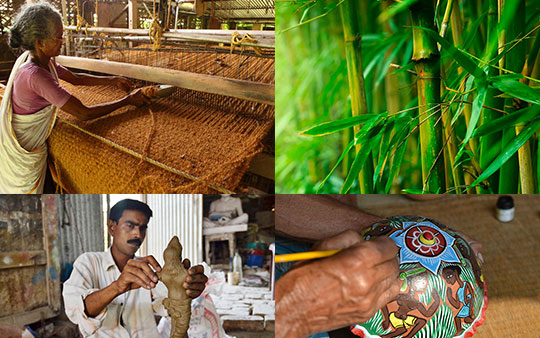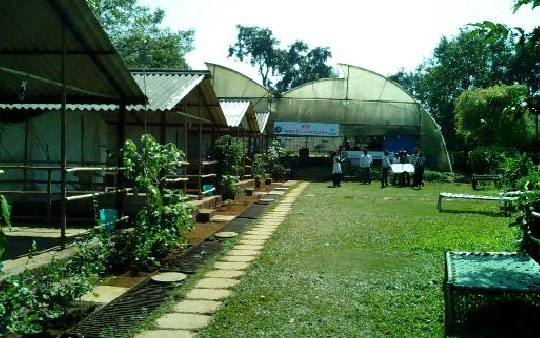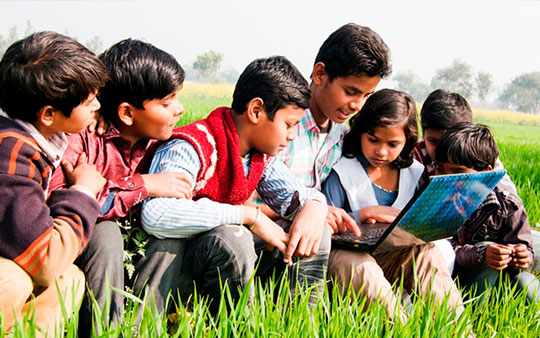

The North-Eastern Region (NER) is a land of magnificent beauty, with undulating hills, rolling grasslands, cascading waterfalls, snaking rivers, terraced slopes and thrilling flora and fauna. This picturesque scenario is contrasted by widespread poverty, low per capita income, high unemployment and low agricultural productivity and food-insecurity. With more than 98 percent international border (sharing with Bhutan and China in the north, Myanmar in the east and Bangladesh in the south-west, the region has several unique features: fertile land, abundant water resources, evergreen dense forests, high and dependable rainfall, mega biodiversity and agriculture-friendly climate. There is a huge potential of the North Eastern regions in the sphere of agriculture, food processing and allied sectors like horticulture, plantation, animal husbandry and fisheries. Yet it has failed to convert its strengths optimally into growth opportunities for the wellbeing of the people.
Among many other opportunities, food processing is very popularly seen as a profitable area for investment in this region. The North-Eastern region is already an important producer of production of several crops with high export potential. But it's matter of concern that the abundant resources, gamut of crop production possibilities, and rich biodiversity have largely remained unexplored. Moreover, the traditional agricultural practices, lack of proper food processing facilities and ineffective states up port system, despite high Union Government priority, have inhibited the agricultural and food processing sector growth, resulting in a clear developmental divide between the NER and the rest of the country. This complexity needs to be understood in proper perspective and corrected.
In recent years, the central and state governments have undertaken several initiatives to stimulate regional economy and promote agricultural growth as well as food processing sector. A synergy is needed among the interdisciplinary research community, policy planners and implementers, along with civil society to create a favourable situation. It is felt that the region needs appropriate policy and investment to boost the development process. Indian Chamber of Food and Agriculture as the apex trade facilitation body and development enterprise for food and agriculture sector in India, is organizing North East Agriculture and Food Processing Summit and Expo 2025 for discussing policies and opportunities and facilitating investments and partnerships by involving important stakeholders.
The Summit will result in formulating actionable plans for industries and entrepreneurs to commit to the development of the North East in agriculture and food processing sector. It is must for everyone anyhow associated with agriculture and food processing sector via business, research, academics, startups, farming, trade, development, policy making, implementation and any other medium across the globe to participate in this very important event of North East India. The North-Eastern region has the opportunity to develop as the true gateway to the South East Asia and flourish in trade and commerce.








On this occasion and in association with Vibrant North East event, ICFA will be organising an agro and food processing Pavillion from 19 th -21 st September at the Srimanta Sankaradeva Kalakshetra, Exhibition Ground, Gate No.2, Guwahati (Assam). The Pavillion would display products, Technologies, schemes etc related to agro and food processing sector. The rates are same as Vibrant North East 2025 event @Rs. 16000 PSM.

The Indian Chamber of Food and Agriculture is the apex body in India, working on business, policy, and development agendas and serving as a global platform for trade facilitation, partnerships, technology, and agribusiness services. A proactive approach helps ICFA discern critical challenges emerging in Indian agriculture and create opportunities for development, value addition, and international trade to accelerate growth in the food and agriculture sectors globally. ICFA, with more than 25 industry Working Groups and sector-specific Business Councils, represents the interests of key stakeholders at the national level and, through its international platforms and partnerships, facilitates India’s global engagement in the food and agriculture sectors.
For enhanced sustainability, food safety, and quality standards, ICFA has taken up the Agriculture Stewardship Program by launching the Healthy Food Initiative program and the Good Agriculture Practices (GAP) project. In a short period of more than seven years, the Chamber has signed MoUs with the ICAR, APEDA, NRDC, RAKEZ Group, ASYAD Group, University of California, University of Maryland, Michigan State University, Iowa State University, Western Australia University, German Agribusiness Alliance, Borlaug Institute for South Asia, African Asian Rural Development Organization, NASSCOM, Sociedad Rural Argentina (SRA), FAMATO, CCI Pau Béarn, IFPRI, etc. Through international partnerships, ICFA envisions mobilizing technologies and investments that will catalyze agribusiness and agri-startups. The more than 35-member ICFA Board has distinguished luminaries, with the Pioneer of India’s Green Revolution, Prof. MS Swaminathan, as its Patron